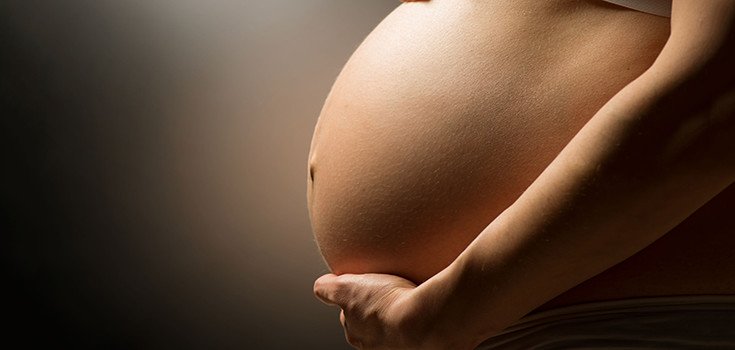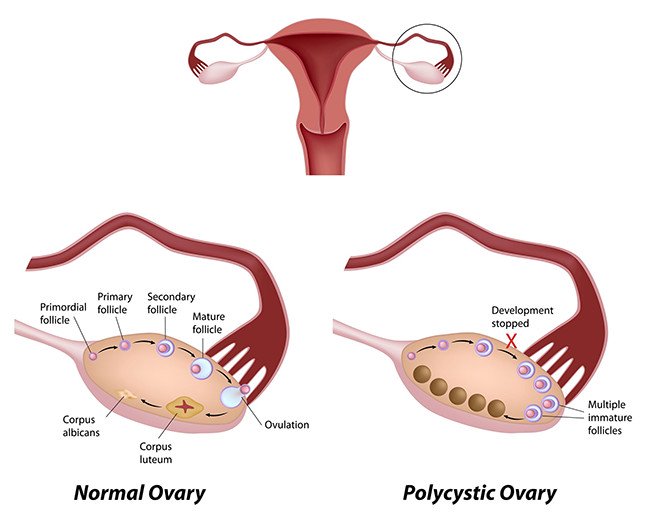Child Autism Risk Spikes 59% When Mother Suffers from This Syndrome

A study published in Molecular Psychiatry shows women who have polycystic ovarian syndrome (PCOS) are 59% more likely to give birth to a child with autism spectrum disorder (ASD) than women without the disorder.
PCOS is caused by cysts on the ovaries and is marked by unusually high levels of the male androgens. The hormonal disorder, which affects as many as 1 in 10 women, can lead to acne, excessive hair growth, weight-gain, and ovulation problems. It is the leading cause of infertility.
The researchers identified close to 24,000 cases and compared them to nearly 200,000 controls. The study looked at all children born in Sweden between 1984 and 2007 and compared National Patient Register records of ASD to records of mothers who had ever been diagnosed with PCOS. The team adjusted for the use of reproductive technology, since women with PCOS are more likely to seek help with conceiving.

The study’s lead author theorizes that the overproduction of androgens in women with PCOS could be the reason for the higher rates of autism among babies born to mothers with the disorder.
“Women with PCOS have increased levels of androgens in their bodies compared to women without PCOS, even during pregnancy,” Kyriaki Kosidou, a psychiatrist and researcher at Karolinska Institutet in Stockholm and lead author of the study, told The Huffington Post.
Kosidou believes androgens could subtly influence the fetus’s developing brain and nervous system.
Obese women with PCOS were even more at risk of having a child with autism, possibly because obese PCOS sufferers tend to have even more androgens than average-weight PCOS patients.
ASD is 5 times more common in boys than in girls, but the National Institutes of Health (NIH) study found no difference in risk for either sex in mothers with PCOS.
In addition to exposure to androgens, there could also be shared genetic influences between PCOS and ASD that could explain the link, such as the metabolic conditions that women with PCOS frequently have.
The study only examined relative, not absolute, risk. In other words, it only compared children with ASD born to PCOS mothers and children with ASD born to mothers without PCOS.
Kosidou said the link between PCOS and ASD is still not clear, and that women with PCOS should not be overly worried about the potential impact of the condition on their children.
“While we did observe an increased risk for ASD, it was a modest increase for a relatively rare disorder,” she said. “Chances are that children born to a mother with PCOS will not develop autism.”
Additional Source:

In a lecture Dr. Jorge Flechas indicated that adequate iodine intake reduced the incidence of PCOS. Furthermore he described the importance of iodine for development of the fetal brain (particularly during the first trimester), since the fetus’ thyroid does not begin to develop until the second trimester. So iodine deficiency in the mother may increase the ASD likelihood.
February 24, 2015 Autism Rates To Increase By 2025?
By 2025, half the children born in the United States will be diagnosed with autism, says Dr. Stephanie Seneff, a senior research scientist at the MIT Computer Science and Artificial Intelligence Laboratory.
Stephanie Seneff is not a credible source on this issue. She’s a computer scientist. Would you ask an immunologist about the details of artificial intelligence? Of course not. So why listen to a computer scientist when it comes to a question of human biology?
SciGuy – 147 comments • 283 votes
Oct 29, 2015 Reality Check: CDC Scientist Admits Data of Vaccines and Autism Was Trashed
Over 100 people gathered outside the CDC in Atlanta demanding transparency when it comes to vaccines. Is there anything to what these people are saying? How about the facts that no one else will share? This is a Reality Check you won’t see anywhere else.
Nice red herring. But I prefer trout.
So you don’t dispute the fact that Seneff is not an expert and shouldn’t be referenced on this issue?
Oh and autism occurs in Amish populations too. That it does not is nothing but a myth.
https://imfar.confex.com/imfar/2010/webprogram/Paper7336.html